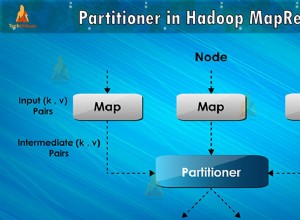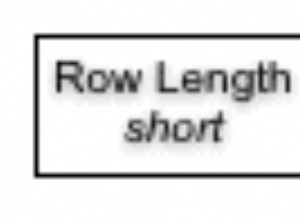Sembravi sulla strada giusta, ci sono solo approcci diversi per rimuovere quei valori di false dal condizionale. Non puoi fargli restituire nulla, ma puoi liberarti dei valori che non vuoi.
Se vuoi veramente "set" e hai MongoDB 2.6 o versioni successive disponibili, in pratica filtri il false valori utilizzando $setDifference
:
db.entities.aggregate([
{ "$unwind": "$entities" },
{ "$group": {
"_id": "$_id",
"A": {
"$addToSet": {
"$cond": [
{ "$eq": [ "$entities.type", "A" ] },
"$entities.val",
false
]
}
},
"B": {
"$addToSet": {
"$cond": [
{ "$eq": [ "$entities.type", "B" ] },
"$entities.val",
false
]
}
}
}},
{ "$project": {
"A": {
"$setDifference": [ "$A", [false] ]
},
"B": {
"$setDifference": [ "$B", [false] ]
}
}}
])
O semplicemente come un passaggio utilizzando $map
operatore all'interno di $project
:
db.entities.aggregate([
{"$project": {
"A": {
"$setDifference": [
{
"$map": {
"input": "$entities",
"as": "el",
"in": {
"$cond": [
{ "$eq": [ "$$el.type", "A" ] },
"$$el.val",
false
]
}
}
},
[false]
]
},
"B": {
"$setDifference": [
{
"$map": {
"input": "$entities",
"as": "el",
"in": {
"$cond": [
{ "$eq": [ "$$el.type", "B" ] },
"$$el.val",
false
]
}
}
},
[false]
]
}
}}
])
Oppure rimani con $unwind
e $match
operatori per filtrare questi:
db.entities.aggregate([
{ "$unwind": "$entities" },
{ "$group": {
"_id": "$_id",
"A": {
"$push": {
"$cond": [
{ "$eq": [ "$entities.type", "A" ] },
"$entities.val",
false
]
}
},
"B": {
"$push": {
"$cond": [
{ "$eq": [ "$entities.type", "B" ] },
"$entities.val",
false
]
}
}
}},
{ "$unwind": "$A" },
{ "$match": { "A": { "$ne": false } } },
{ "$group": {
"_id": "$_id",
"A": { "$push": "$A" },
"B": { "$first": "$B" }
}},
{ "$unwind": "$B" },
{ "$match": { "B": { "$ne": false } } },
{ "$group": {
"_id": "$_id",
"A": { "$first": "$A" },
"B": { "$push": "$B" }
}}
])
Utilizzando $push
per array normali o $addToSet
per set unici.




